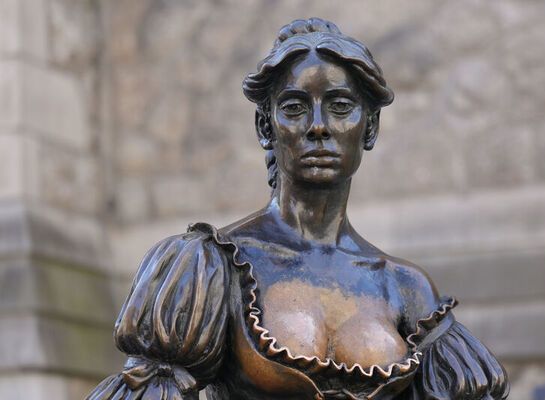Funny then that by last Saturday night, the very same team was being castigated. Now, they are also-rans and has-beens, a squad whose best days are disappearing fast in the rear view mirror. Eighty minutes were enough to confirm massive rebuilding would be required if anything at all was going to be achieved at the World Cup and several of the world-beaters of the week before are now being talked about as "finished". Of course, to sane people it all seemed very over the top. In reality, the team was never as good or as bad as they have been portrayed. In Ireland today, it often seems that we can only talk in extremis and a tendency towards over-reaction has thieved us of the ability to put things in their proper context.
Watching the RTE News last Saturday night, the report of the team's demise included a line about them being scuppered in their bid to become the first outfit in the history of the Six Nations to repeat the Grand Slam. That throwaway line summed up how much perspective is a casualty of the rugby-related hype. The Six Nations is barely a decade old. It's hardly a big deal that nobody has yet completed two Grand Slams in a row. A glance at the record books does show that it has been done more than once, back when the competition had yet to be "rebranded" and revamped for the new century in order to allow Italy in as whipping boys.
That news bulletin also contained curiously in-depth analysis of the reasons for the Ireland defeat. There wasn't just the customary highlights package, topped off with post-match quotes from the manager and captain. There was ancillary reaction via interviews with fans outside the stadium in St. Denis. There was even a segment with former Irish international Jim Glennon in which he provided a pithy explanation of just where it all went wrong. The whole segment seemed bizarre given that all this ground had already been covered elsewhere on RTE. In a country on the precipice of economic disaster, surely the RTE News has other stories it could be devoting this time to rather than yet one more defeat in Paris.
This sort of carry-on isn't exclusively the preserve of the rugby crowd either. The other week RTE's Liveline devoted a segment to reports about a quarrel on the Luas between Shelbourne and Shamrock Rovers' supporters. As one message board wag so deftly put it, this was the equivalent of two bald men fighting over a comb. It might be even more accurately described as a squabble between two sets of teenagers from different schools. Yet, it was on the national airwaves. Why? Who decides this is news? Some loon in Donnybrook who wants to create the impression we have a burgeoning soccer hooligan problem. Sorry, we don't have enough League of Ireland fans to have that sort of issue.
Much like the news bulletin going ridiculously long on the aftermath of the Paris match, the real question here is why a program supposedly designed to allow the public air their daily grievances devoted any time at all to such a trivial issue involving a tiny minority of a tiny minority. Seriously, a glance at the front pages of the newspapers on any given morning last week would offer evidence that there were dozens of items more deserving of an airing on the national broadcaster than a fracas involving these supporters. Not to mention how utterly irrelevant any League Of Ireland yarn is to the vast majority of the listeners.
The place of sport in Irish society has always been outsized. There are very few nations in the world that are so besotted by so many different codes. Yet, a side-effect of this is an unfortunate tendency to invest events with exaggerated significance. Every friendly that the Irish soccer team plays is taken too seriously. A win is evidence the squad is full of world-class players, a defeat is a sign the end is nigh. Even farther down the food chain, we can't put things in proper perspective,
A few months back, Seamus Coleman came off the bench to play 75 minutes for Everton in the Premiership. A fantastic display by the 22-year-old defender, it spawned ludicrous, painfully premature talk about his future chances of greatness. He's barely been seen on the field since because he's a David Moyes' development project whose time will hopefully come. The way some people were willing to instantly anoint him the next Denis Irwin - on the back of one admittedly impressive cameo - was one more illustration of how desperate we are for feel-good sport stories.
The GAA is not immune from this unfortunate carry-on either. There was a headline in the Irish Independent last Monday the gist of which was "Retribution for Rebels." This was over a report on the game at Pairc Ui Rinn where a marginally stronger Cork selection defeated a more experimental Kerry side in the second round of the National Football League. Retribution? Not even the most crazed Gaelic football zealot in West Cork would call it that. Retribution will come when Cork finally best Kerry in a meaningful game in Croke Park. Until then, everything else is media hyperbole.








